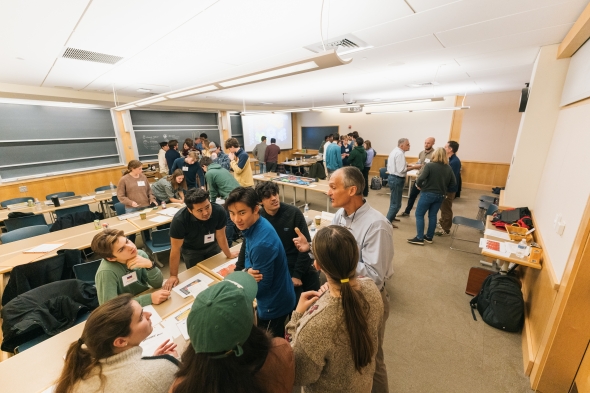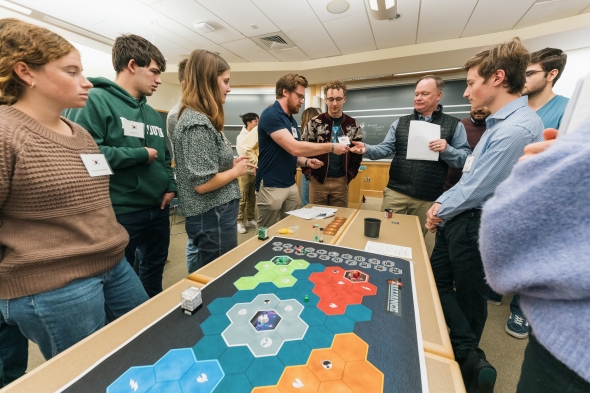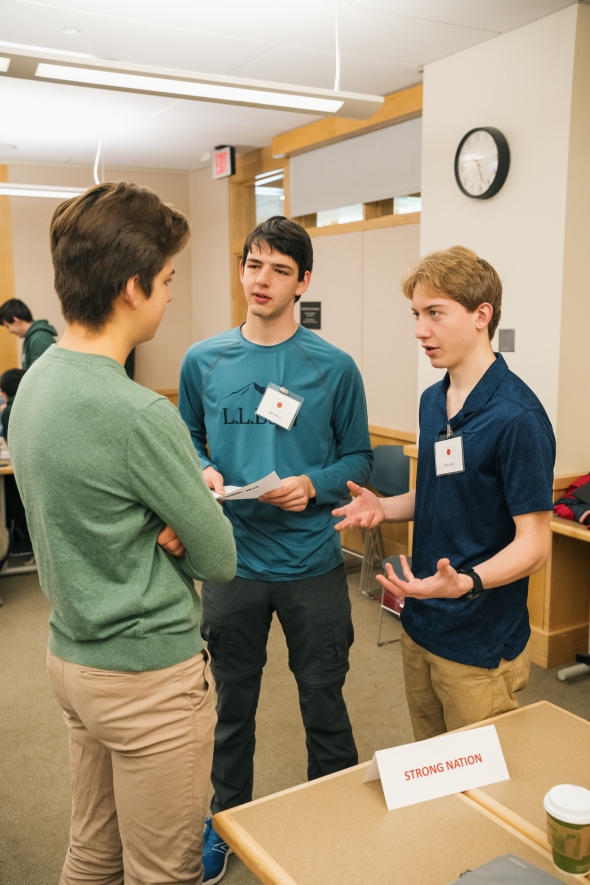

Nathan Hammerschmitt Le Gal


Great Issues Scholars: Wargaming Simulation!
Dartmouth is all about trying something new, and for one day, I became the Prime Minister of Russia.
Picture this: you're assigned a leadership role in a given country, you're provided with a limited pool of resources, and you're supplied with a secret set of objectives to complete. You're faced with countries each presented with their own scenario, and you have absolute freedom in the actions you choose to take. Diplomacy, trade, espionage, war—it's all on the table.
This was essentially my starting point in the game Alliance, a wargaming simulator organized by the Dickey Center for International Understanding here at Dartmouth. As part of the Great Issues Scholars program (GIS), I had the opportunity to spend an entire Saturday working with fellow students to advance my country's position in the game.
The event took place in partnership with wargaming professionals from the U.S. Naval War College in Newport, Rhode Island. Each nation had an advisor, and ours was David Sampson, a current professor who used to fly fighter jets in the Navy.
Our nation was "Strong Nation," or Russia (as denoted by the flags on our neat name tags). The goal of the game is to increase your nation's "Status," and this is achieved by reaching your assigned goals. Professor Sampson made it clear from the very beginning that we had a very different role than many of the other nations. While South Korea, Japan, and the United States were tasked with innovating new technology and facilitating international peace, we had to stage invasions and utilize military force.

I learned that this was a quite hard role to play. We staged a failed invasion of Japan, lost substantial amounts of resources, and lacked the means to rebuild a post-war Russia. I did learn, however, how complex and nuanced navigating international relationships can be. Each round was a whirlwind of talking faces, handshakes, and private meetings. I was overwhelmed by the amount of deals offered—deciding our next move was always the hardest part.


In the end, every nation increased its status to a respectable level (yes, even us, and our dedicated partner, China). Fortunately, another goal of the game is to keep all countries over a certain status threshold so that no nation is left behind (go international development!). Our objectives did in fact make advancing hard, since aggressive actions will by default provoke adverse reactions. Maybe we didn't come out on top, but we survived.
For more information about the Great Issues Scholars Program, please visit this link!
Posts You Might Like

I'm excited for my upcoming off-term in Hanover full of winter magic (and snow, hopefully)!


Come with me as I (try to) chef up various dishes on campus!


At most colleges, midterms begin in mid-October, but Dartmouth's 10-week quarter system means they can begin as early as week 3. With the right habits and resources, you can balance your workload with wellness.


Interested in government? Learn more about an introductory government course here!



Read this to learn about what Jewish life looks like at Dartmouth!


My hardest decision all term: deciding which film to see at the Telluride at Dartmouth film festival



Hear all about my First-Year Seminar: Seriality in Pop Culture!

